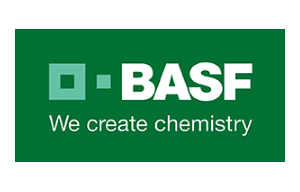Promoting change
Learn more about where, how and why we carry out our advocacy.
Permits Foundation is the only organisation specifically campaigning for work authorisation for accompanying family members of highly-skilled international employees. We take a collaborative approach and engage with a wide range of stakeholders to encourage governments to recognise this issue in their migration policies.
Where we have contributed to change
Since we began in 2001, the Foundation has directly and indirectly contributed to policy change around the world. More than 40 countries now allow accompanying spouses or partners to work under their dependant visa status. Many also adopt a broader definition of recognised family members, inclusive of non-married and/or same-sex partners. We closely monitor the legislative landscape and track changes via our interactive World Map.
Promoting best practice
Permits Foundation promotes the best practice of direct work authorisation for recognised dependant family members of highly-skilled international employees, particularly spouses and partners. Where possible, we recommend a broad definition of family members who may accompany and access employment.
What direct work access looks like:
Access to the employment market linked to dependant status
Open permission to apply for jobs, not tied to a specific employer or sector
No separate work permit, long process or labour market tests required
Reassurance in advance that work is permitted without losing dependant family member status
Eligibility written into law or regulation and published via government websites
Includes self-employment, temporary or part-time work
Recent examples of our impact promoting change
EU ICTs
Permits Foundation’s extensive campaign and representation to EU institutions contributes to vital cause including family work access added in the Intra-Corporate Transferee Directive
2014
UK
Permits Foundation submits evidence to Migration Advisory Committee review of T2 visa, government chooses not to restrict dependant work access
2016
BRAZIL
Working with local network, Permits Foundation proposals influence Government decree which enables partners of temporary work visa holders to work
INDIA
Permits Foundation supports proposal for a specific ICT visa, paving the way for a specific ICT spousal visa, the focus of our campaign going forward
2019
EU BLUE CARD
Permits Foundation advocacy in Brussels helps ensure that the revised Blue Card retains (at risk) direct work authorisation for family members
2021
USA
Permits Formation submissions to USCIS, DHS and Congress contribute to decision not to rescind work authorisation for certain accompanying H-4 spouses
IRELAND
Permits Foundation local campaign including roundtables, evidence-based submissions and direct conversations with policy makers influences policy in Ireland culminating in direct work access for spouses and partners of ICTs
2024
Current focus
Though we carry out work in many global mobility destinations around the world, we prioritise approximately six countries at a time, based on requests from our network. These countries are always international business hubs where we see opportunity for change, or the threat of regression.
Our current country priorities are listed below.






Strategic activities
When approaching a particular country, we plan a strategic approach to suit the political, economic and social climate, and any laws or developments on immigration policy. Then we perform the following activities:
- Raise awareness via conferences and seminars
- Gather support from national and international organisations
- Make representations to the government, in person and in writing
- Convey the feedback received from our network and our surveys
- Show the global landscape via our World Map
- Offer evidence-based data and policy solutions
- Share best practice information and news about governmental progress

Key steps in a country campaign
Hover over each step to learn more.
Understand
Identify resources
Plan
Implement
Refine
- Assess interest/potential plans for policy change
- Gauge social, political, economic climate
- Research work authorisation legislation or regulation
- Determine employee permit(s) for which change sought for dependants
- Establish timeline of activity
- Establish local network
- Seek advice from experts
- Connect with affected stakeholders, Chambers
- Determine key contacts for government and policy reach out
- Identify key decision makers
- Anticipate steps in the policy process
- Establish milestones
- Gather evidence, case studies, views
- Prepare position papers, draft legislative clauses
- Write letters, organise meetings
- Build support, respond to concerns
- Provide international comparisons
- PR/press/social media
- Success achieved?
- If not, review and refine process
- Gather further evidence to address issues raised
How we develop a local network
Explore
Initial discussions with local sponsors. Seek expert advice within the Permits Foundation network.
Establish
Gather feedback on employer experience and hold (online) meetings to establish the best local network possible.
Consult
Consult government representatives, employer groups, chambers of commerce, international organisations and embassies.
Act
Make focused representations to government via meetings, roundtables, evidence-based submissions and coordinated letters of support.
Bringing policy solutions
When speaking to governments, we make the following arguments in support of direct partner work authorisation:
- It’s easier for employers to move, attract and retain talent
- Families are better able to integrate and employee experience improves
- Governments can address skills shortages as employers can more easily fill urgent and temporary vacancies
- Reduced administrative burden and associated costs
- The cohort of spouses/partners seeking work access is small in number and highly qualified
- Countries that enable partner work access are at a competitive advantage and gain reputation as more attractive business destinations
- Talent in country is not going to waste; accompanying partners’ skillsets are often in demand

Sponsors make our advocacy work possible
Achieving lasting change can be a long process and often takes years of concerted effort. Our sponsors recognise this, and it is their continued support that makes our sustained push for progress possible. When we carry out advocacy, we do so as a not-for-profit organisation and don’t mention individual sponsors without their permission.









